Story
Lisbon, the European capital of innovation
Spaces for innovation, technology and entrepreneurship
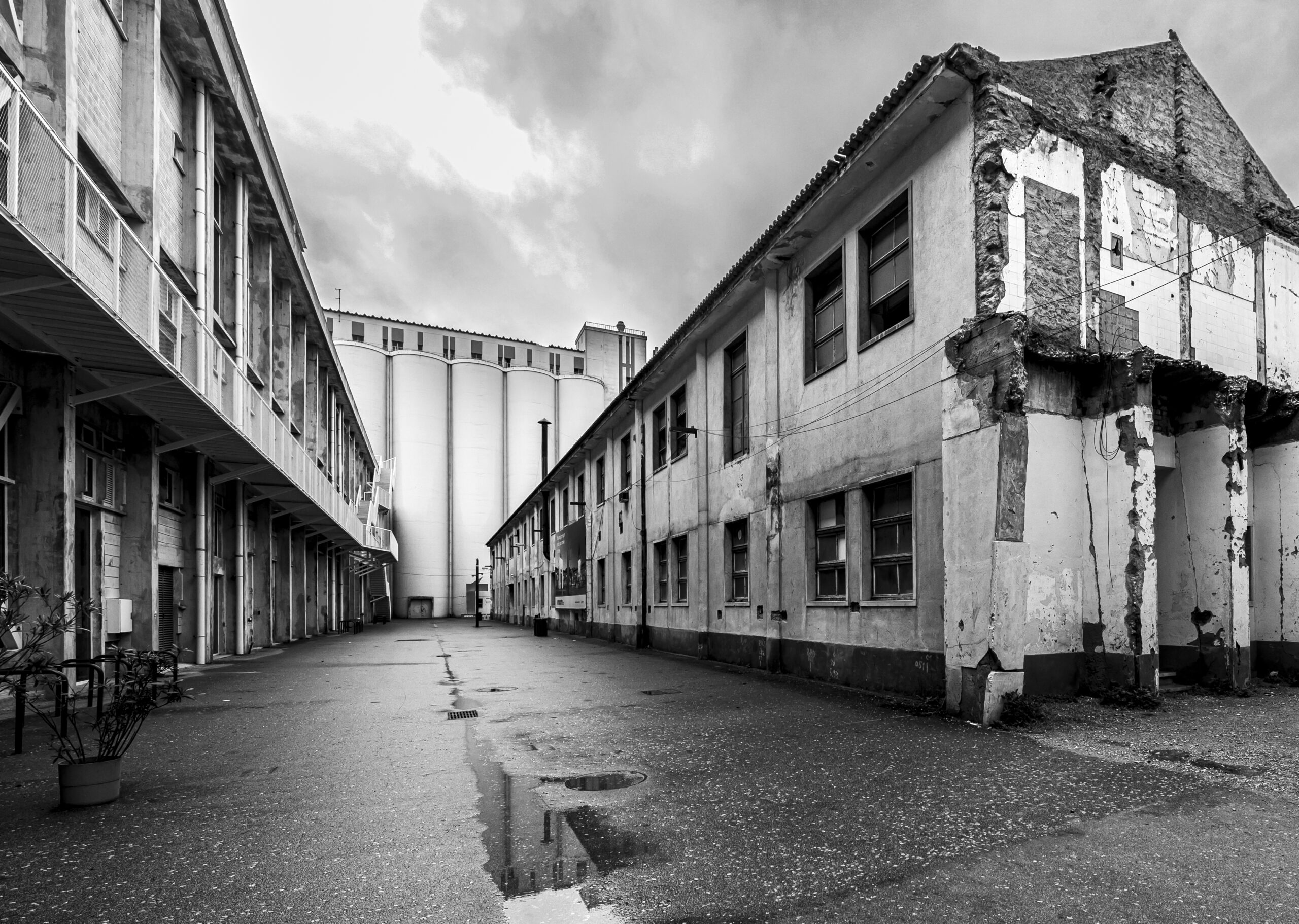
In Lisbon, the spaces where innovation, technology and entrepreneurship intersect are multiplying. Considered a strong engine of development, this ecosystem, as it is called, is made up of a network that integrates public organisms, companies, academia, industries and civil society. Despite being complex and varied in terms of projects, missions and objectives, this network and its agents share an ambition: to place Lisbon at the forefront of technology, innovation and creativity, attracting investors, researchers, scientists and successful projects.
The European Capital of Innovation award, awarded to the city at the end of 2023, legitimizes this claim. It also brings one million euros that the Unicorn Factory intends to invest in projects that put technology at the service of social innovation and the fight against exclusion. In this sector that wants to change the city, not everything is accessible, but there is room for everyone. We present four spaces where ideas are born and take shape.
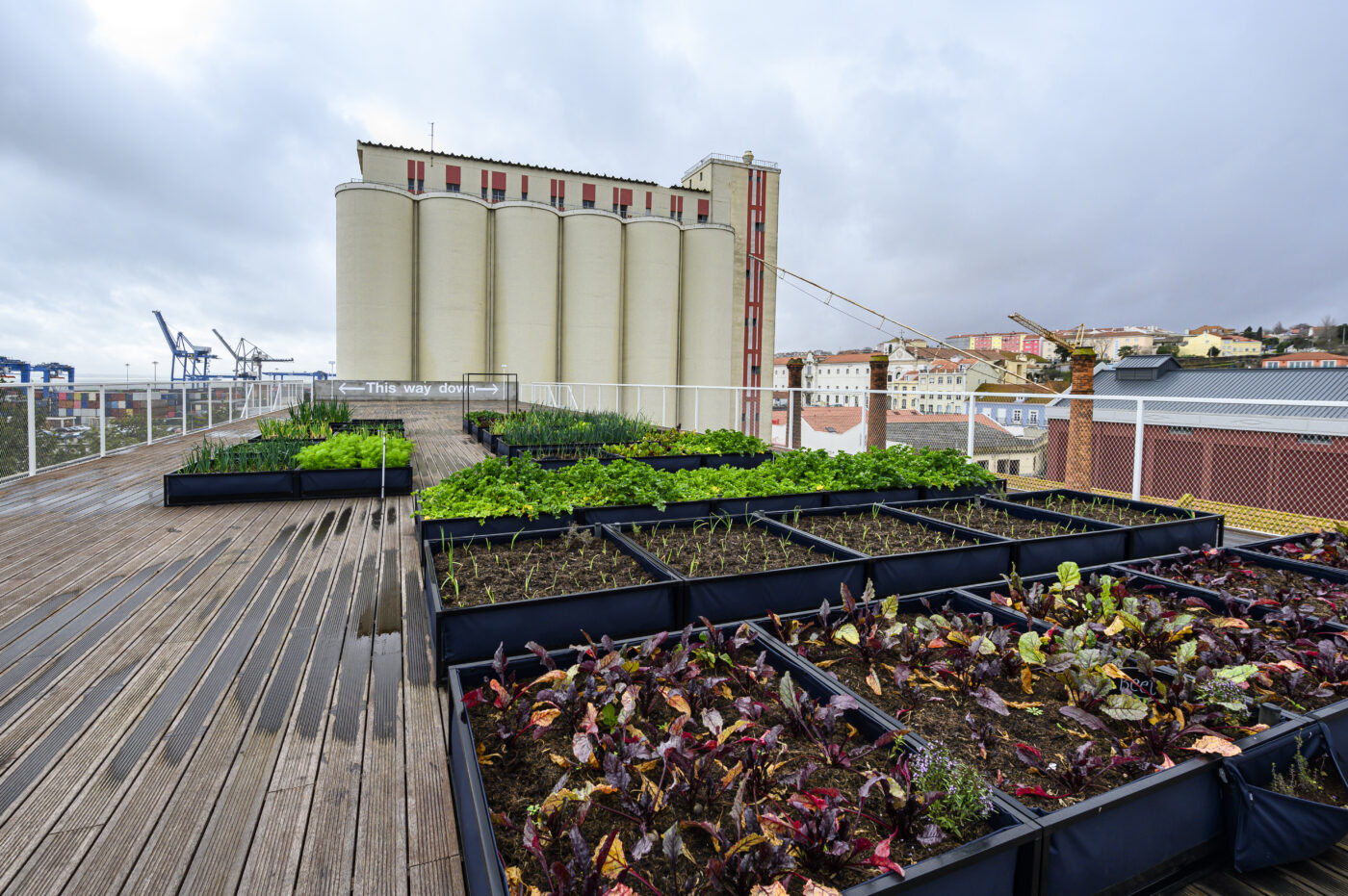
HUB CRIATIVO DO BEATO
Rua da Manutenção, 71
hubcriativobeato.com
It is one of the main addresses of innovation in Lisbon and this is, precisely, the main selection criterion for companies and projects that set up shop here. Occupying the factory area of the Former Military Maintenance, Hub Criativo do Beato will, when fully rehabilitated, be one of the largest spaces of its kind in Europe, with capacity for 3000 jobs. Of the 18 buildings in the complex, five have been restored and 15 are under contract, project manager José Mota Leal tells us.
The offices of Web Summit and Unicorn Factory are located here, a structure that, in just two years, attracted 54 new technology centers to Lisbon, coming from 23 countries. Here large multinational companies such as Sixt operate, information technologies are developed (Claranet), art is combined with technology (Interactive TechnoIogies Institute) and bacteria are transformed into protein (Microharvest). For now, the presence of services is noticeable with the Square, a restaurant and market area where national products have exclusivity.
A museum, to be installed in the old Grinding Factory, is expected to open soon, and a co-living space.
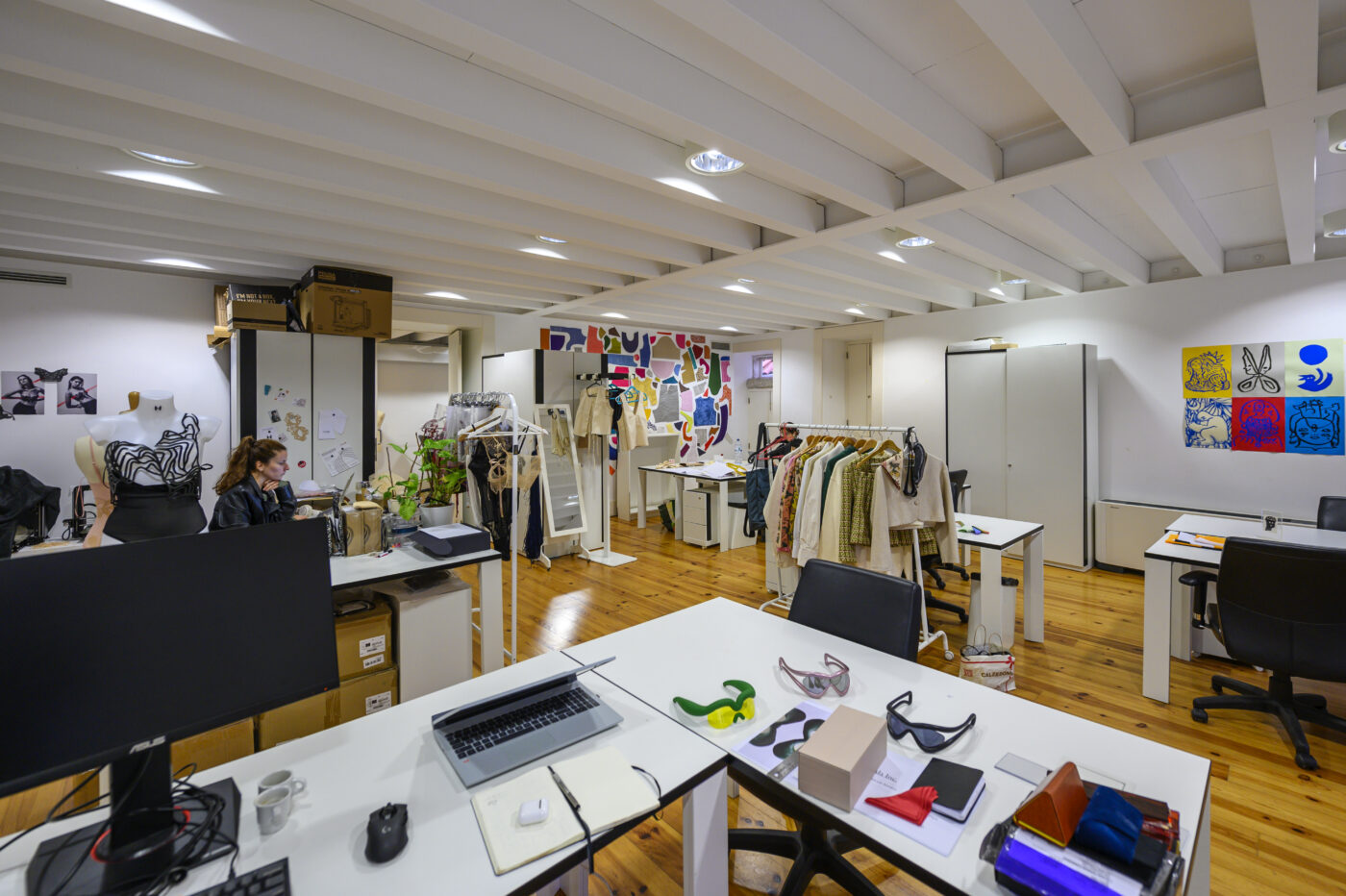
CIM – CENTRO DE INOVAÇÃO DA MOURARIA
Travessa dos Lagares, 1
facebook.com/mourariacreativehub
It was the first municipal incubator to support projects and business ideas in the areas of cultural and creative industries, such as design, media, fashion, music, tiles, jewelry, among others. In addition to providing fully equipped jobs, tailored training and consultancy, or a wide network of mentors, CIM also provides support for incubation services in terms of management, marketing, legal advice, product and service development and financing.
At the moment, the center has 13 projects in development, mainly in the areas of fashion design, communication design, design for sustainability, product or textile design, which arrive there “through calls or open applications throughout the year”, says Rosário Pedrosa, CIM’s coordinator. “After the selection is made, the projects are incubated for a maximum period of four years, during which each project can have up to four jobs,” she adds.
“Our main focus is working for residents, with workshops, masterclasses, open days, speed dating, etc., but we also work for creatives in general, as well as for the community”, highlights Rosário Pedrosa.
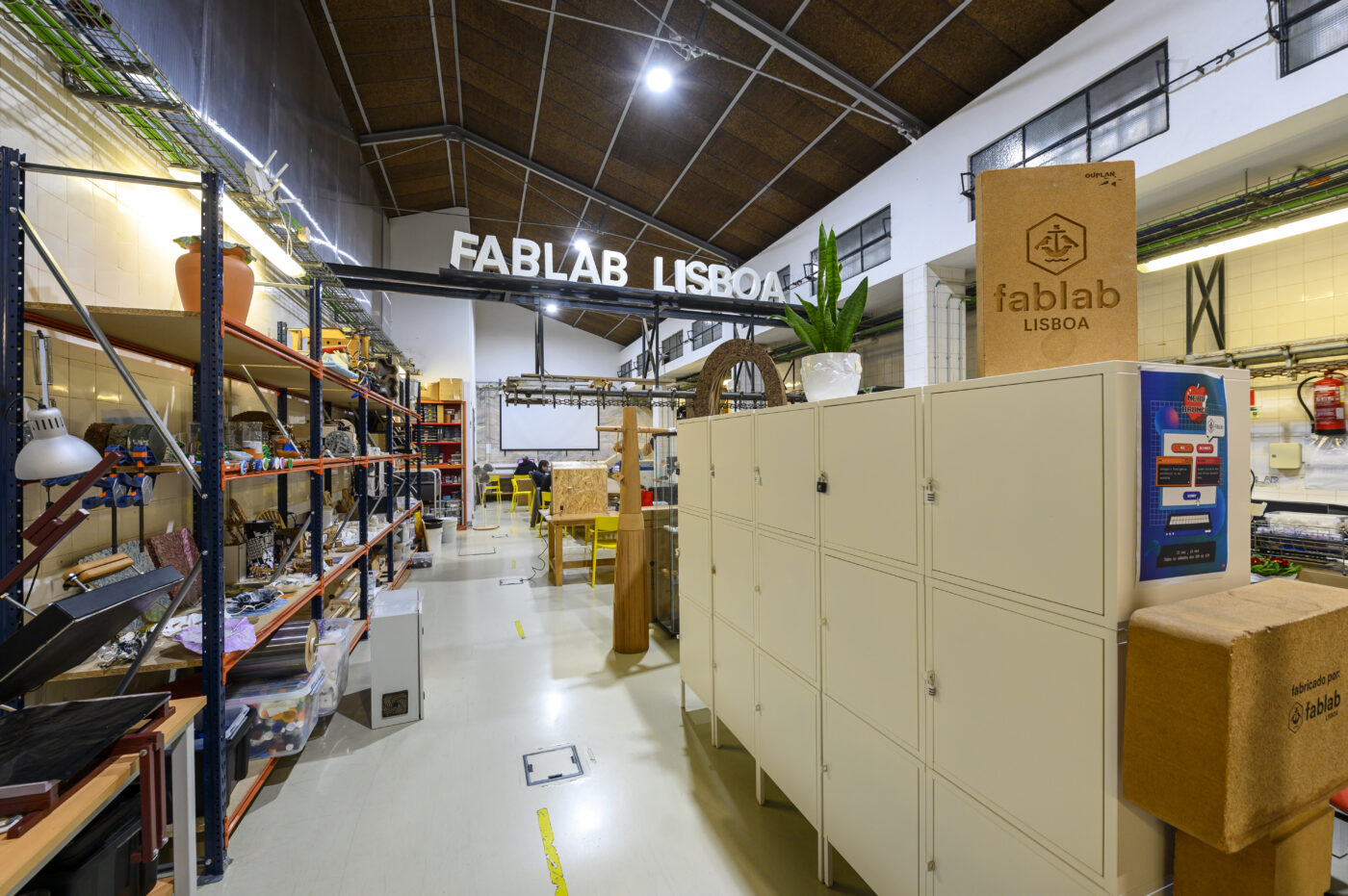
FABLAB LISBOA
Rua Maria da Fonte, 4 – Mercado do Forno do Tijolo
fablablisboa.pt
“FabLab is a place where you can do almost anything. And its main objective is training. Always has been and always will be.” It is André Martins, coordinator of the space, who guarantees it. “We do this training through the democratization of access to tools, namely digital manufacturing and prototyping tools”, he adds. Almost anything can be done there, as the primary purpose of this laboratory-workshop is to transform ideas into reality.
Open since 2013, it operates in Mercado do Forno do Tijolo and offers accessible and safe industrial equipment, such as small and large milling machines, laser cutting and vinyl cutting machines, 3D printers, an electronics bench, computers and their respective computer programming tools supported by CAD and CAM software.
Being accessible to citizens, by appointment, FabLab promotes open days on Mondays and Tuesdays, where the use of the machines is free, always under the watchful eye of the responsible team. This space for sharing knowledge and experiences is, according to André Martins, “increasingly a laboratory that has an impact on the city”.
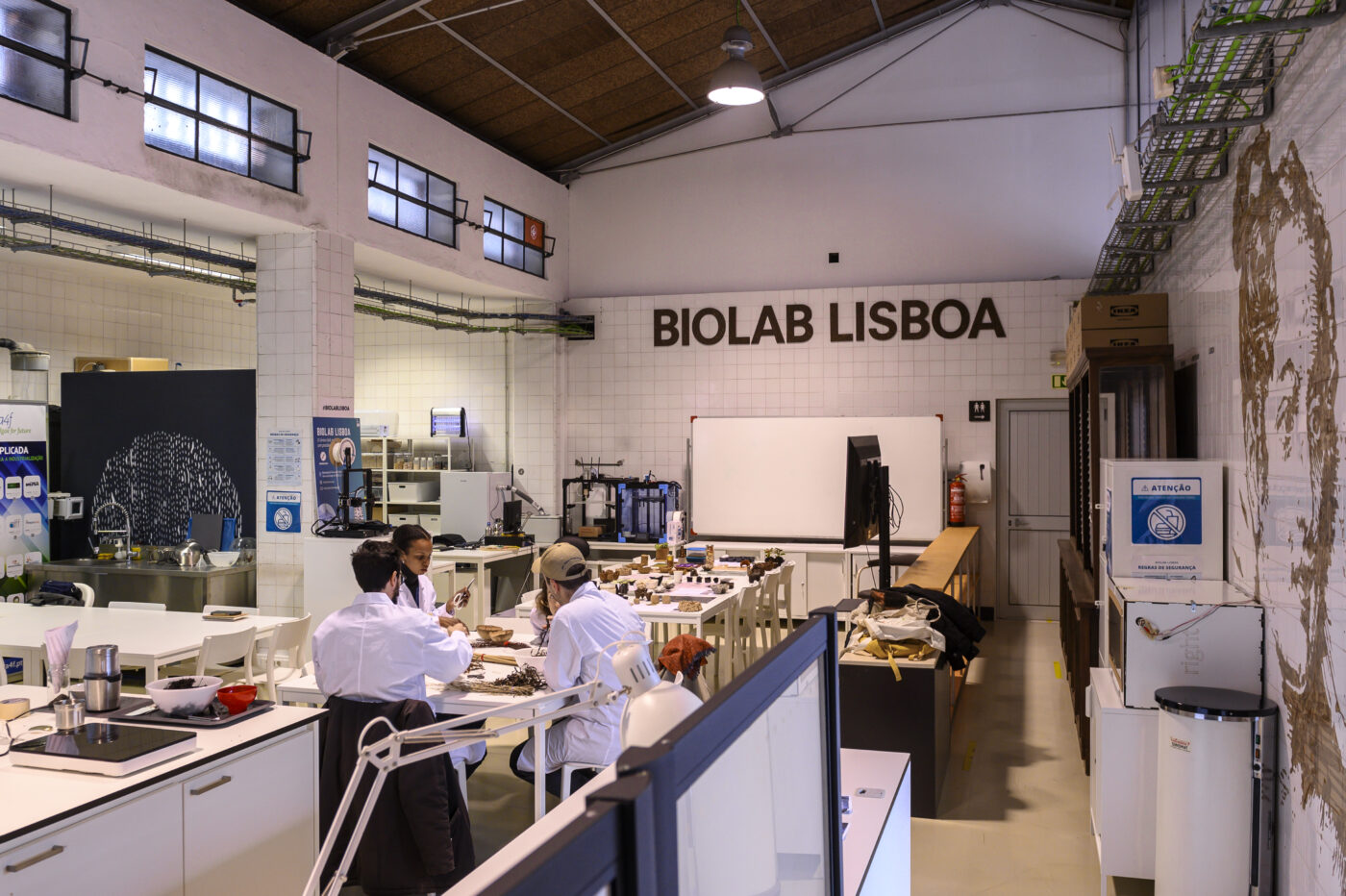
BIOLAB LISBOA
Rua Maria da Fonte, 4 – Mercado do Forno do Tijolo
biolablisboa.pt
It was born in 2022 as a spin-off of FabLab and with sustainability in its DNA. It is a research, experimentation and prototyping laboratory, whose operation is ensured, in partnership, by the Lisbon City Council and the Faculty of Sciences of the University of Lisbon. Open to all citizens, it prioritizes ideas and projects that bring added value to the city, as Rafael Calado, the coordinator of the space, tells us.
Access to the laboratory is by invitation, spontaneous application or during open days that take place every Thursday. You don’t need to be a scientist or have knowledge of science, as Calado says, recalling the case of a Repair Café regular who asked for help to create soap packaging from almond shells. However, many researchers from various areas of knowledge seek out BioLab to develop their projects.
Currently, and at the proposal of the team that runs this space, a group of designers is experimenting with algae in prototypes of utilitarian objects. The laboratory has 3 levels of biological safety and an ethics charter that defines the limits of what can and cannot be done here.